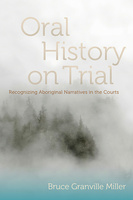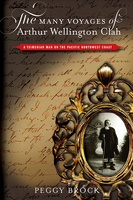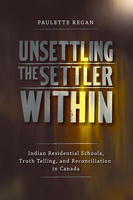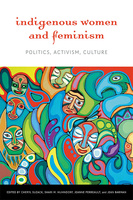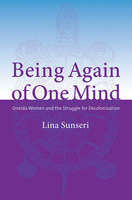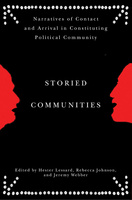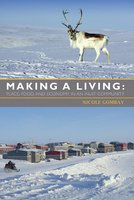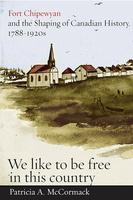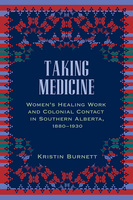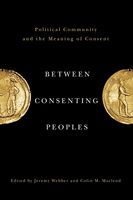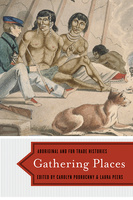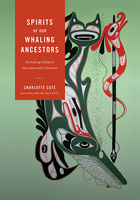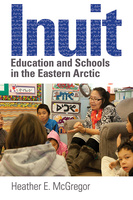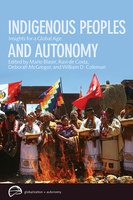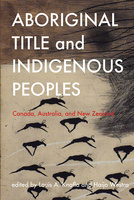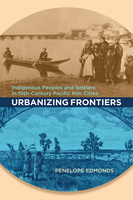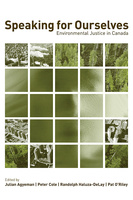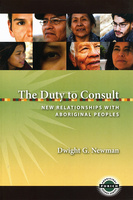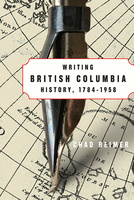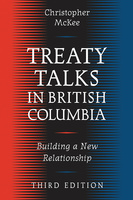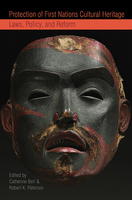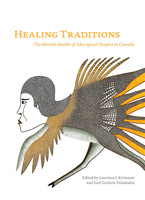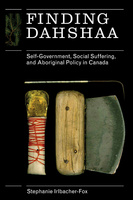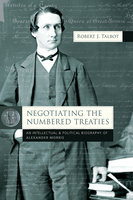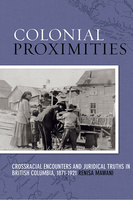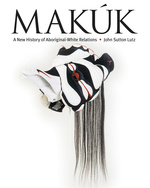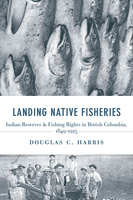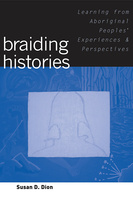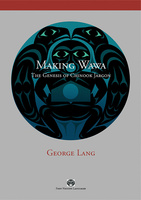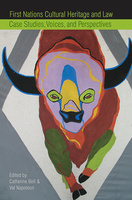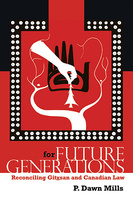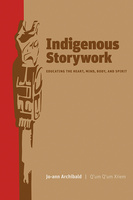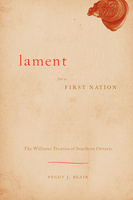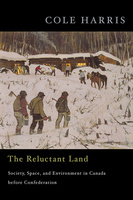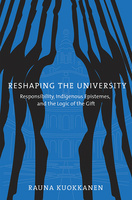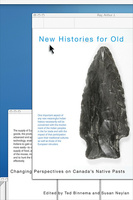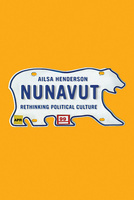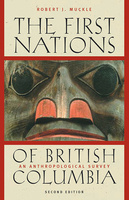Oral History on Trial
Recognizing Aboriginal Narratives in the Courts
This compelling analysis of Aboriginal, legal, and anthropological concepts of fact and evidence argues for the inclusion of Aboriginal oral histories in Canadian courts, and pushes for a reconsideration of the Crown's approach to oral history.
The Many Voyages of Arthur Wellington Clah
A Tsimshian Man on the Pacific Northwest Coast
Drawing on a painstaking transcription of Clah’s diaries, Peggy Brock offers a riveting portrait of a Tsimshian man and his encounters with colonialism.
Unsettling the Settler Within
Indian Residential Schools, Truth Telling, and Reconciliation in Canada
Unsettling the Settler Within is a powerful call to action that lays bare the myth of the peacemaking settler and points the way toward a meaningful reconciliation between Aboriginal and non-Aboriginal Canadians grappling with the legacy of the Indian residential school system.
Indigenous Women and Feminism
Politics, Activism, Culture
This wide-ranging collection examines the historical roles of Indigenous women, their intellectual and activist work, and the relevance of contemporary literature, art, and performance for an emerging Indigenous feminist project.
Being Again of One Mind
Oneida Women and the Struggle for Decolonization
By combining the narratives of Oneida women with a critical reading of feminist literature on nationalism, this book reveals that some Indigenous women view nationalism in the form of decolonization as a way to restore balance and well-being to their own lives and communities.
Storied Communities
Narratives of Contact and Arrival in Constituting Political Community
An exploration of the role of storytelling in community and nation building that disrupts the assumption in many works that indigenous and immigrant identities fall into two separate streams of analysis.
Making a Living
Place, Food, and Economy in an Inuit Community
A social and cultural examination of Indigenous societies as they strive to retain the values rooted in life on the land while adjusting to the realities of life in settlements.
Fort Chipewyan and the Shaping of Canadian History, 1788-1920s
"We like to be free in this country"
This meticulously researched study of the most famous of the Treaty No. 8 communities offers a unique perspective on nation building that challenges the nature of history writing in Canada itself.
Taking Medicine
Women's Healing Work and Colonial Contact in Southern Alberta, 1880-1930
Taking Medicine challenges traditional understandings of colonial medicine by bringing to light the healing work of Aboriginal and settler women in southern Alberta.
Between Consenting Peoples
Political Community and the Meaning of Consent
This book examines how consent might be understood as the foundation of legal and political community, especially in relations between indigenous and nonindigenous peoples.
Gathering Places
Aboriginal and Fur Trade Histories
Scholars from multiple disciplines draw on unique and innovative sources – archaeological and material evidence, personal experience and oral history – to recover Aboriginal and cross-cultural histories and explore new approaches to the past.
Spirits of Our Whaling Ancestors
Revitalizing Makah and Nuu-chah-nulth Traditions
Following the revival of the gray whale hunt by the Makah and Nuu-chah-nulth tribes in the Pacific Northwest, this books looks at the significance of whaling to these societies, exploring environmentalism, animal rights, and what it means to be “Indian.”
Inuit Education and Schools in the Eastern Arctic
The first history of educational policy, practice, and decision making in the Eastern Arctic, now Nunavut.
No need of a chief for this band
The Maritime Mi'kmaq and Federal Electoral Legislation, 1899-1951
A nuanced account of Ottawa’s failed attempt to replace Mi’kmaw political culture with Euro-Canadian political values and structures.
Indigenous Peoples and Autonomy
Insights for a Global Age
This book looks at how indigenous peoples in various contexts have thought about, and responded to, the pressures that globalization has on their cultural, political, and geographical autonomy.
Aboriginal Title and Indigenous Peoples
Canada, Australia, and New Zealand
Offers a perspective on Aboriginal title and land rights that extends beyond national borders and the contemporary context to consider historical developments in common law countries.
One of the Family
Metis Culture in Nineteenth-Century Northwestern Saskatchewan
Employs a sophisticated theoretical framework and diverse sources to trace the birth and growth of a Metis community in northern Saskatchewan.
Urbanizing Frontiers
Indigenous Peoples and Settlers in 19th-Century Pacific Rim Cities
This book explores the lives of Indigenous peoples and settlers and compares the emergence of racial boundaries in two Pacific Rim cities – Victoria, British Columbia, and Melbourne, Australia.
Speaking for Ourselves
Environmental Justice in Canada
This book showcases the work of Aboriginal and non-Aboriginal scholars who uphold environmental justice as the path to a more just, equitable, and sustainable Canada.
The Duty to Consult
New Relationships with Aboriginal Peoples
What does the duty to consult actually mean, and when it is required? The policies and decisions made regarding this duty are concisely outlined, along with important questions that remain.
Writing British Columbia History, 1784-1958
This sweeping exploration of history writing in British Columbia shows how historians helped to construct Canada's settler society.
Treaty Talks in British Columbia, Third Edition
Building a New Relationship
This third edition of a classic brings readers up to date on treaty negotiations in British Columbia and is a valuable resource for those interested in the treaty process both in BC and Canada.
Protection of First Nations Cultural Heritage
Laws, Policy, and Reform
Home Is the Hunter
The James Bay Cree and Their Land
The James Bay Cree lived in relative isolation until 1970, when Northern Quebec was swept up in the political and cultural changes of the Quiet Revolution. Home Is the Hunter presents the historical, environmental, and cultural context from which this recent story grows.
Healing Traditions
The Mental Health of Aboriginal Peoples in Canada
Finding Dahshaa
Self-Government, Social Suffering, and Aboriginal Policy in Canada
Based on case studies of three self-government negotiations in the Northwest Territories, Finding Dahshaa is the first ethnographic study of the negotiation of self-government in Canada.
Becoming British Columbia
A Population History
Becoming British Columbia investigates critical moments in the demographic record of British Columbia, including catastrophic epidemics, immigrant rushes, forced migrations, the fertility transition, and the baby boom, in an accessible yet scholarly and provocative way.
Negotiating the Numbered Treaties
An Intellectual and Political History of Alexander Morris
The story of the prairie treaties and Alexander Morris, a man who embraced a larger concept of nationhood and the role of First Nations in the expansion of Canada.
First Nations, First Thoughts
The Impact of Indigenous Thought in Canada
A thought-provoking volume that brings together Aboriginal and non-Aboriginal thinkers and activists to explore the innovations and challenges that Indigenous thought continues to bring to Canada.
Colonial Proximities
Crossracial Encounters and Juridical Truths in British Columbia, 1871-1921
Colonial Proximities traces the encounters between aboriginal peoples, mixed-race populations, Chinese migrants, and Europeans in late-nineteenth- and early-twentieth-century British Columbia.
Landing Native Fisheries
Indian Reserves and Fishing Rights in British Columbia, 1849-1925
Braiding Histories
Learning from Aboriginal Peoples’ Experiences and Perspectives
Making Wawa
The Genesis of Chinook Jargon
A two-edged sword of reconciliation and betrayal, Chinook Jargon (aka Wawa) arose at the interface of “Indian” and “White” societies in the Pacific Northwest. Wawa’s sources lie first in the language of the Chinookans who lived along the lower Columbia River ...
Indigenous Diplomacy and the Rights of Peoples
Achieving UN Recognition
With a focus on international law, Henderson analyzes what the UN Declaration of the Rights of Indigenous Peoples means for Indigenous peoples around the world and for Canada.
First Nations Cultural Heritage and Law
Case Studies, Voices, and Perspectives
For Future Generations
Reconciling Gitxsan and Canadian Law
Dawn Mills passionately shows how reconciliation can be achieved between Canada’s First Nations and the various levels of government.
Moving Toward Justice
Legal Traditions and Aboriginal Justice
Exploring constitutional and administrative policy changes that underscore the urgent need for Aboriginal justice reform.
Lament for a First Nation
The Williams Treaties of Southern Ontario
An important analysis of how the 1994 Howard decision on the Williams Treaties was based on erroneous cultural assumptions that favoured public over special rights.
The Reluctant Land
Society, Space, and Environment in Canada before Confederation
Aboriginal Self-Government in Canada, Third Edition
Current Trends and Issues
An interdisciplinary guide for learning about government policy and the aspirations of Canada’s Aboriginal peoples.
Navigating Neoliberalism
Self-Determination and the Mikisew Cree First Nation
This remarkable book argues that neoliberalism, which drives government policy concerning First Nations in Canada, can also drive self-determination -- including the Mikisew First Nation, which successfully exploited opportunities for greater autonomy and well-being that the current political and economic climate has presented.
Reshaping the University
Responsibility, Indigenous Epistemes, and the Logic of the Gift
New Histories for Old
Changing Perspectives on Canada’s Native Pasts
The collection combines essays by prominent senior historians, geographers, and anthropologists with contributions by new voices in these fields, to shed new light on the history of scholarship on Canada’s Aboriginal past.
Let Right Be Done
Aboriginal Title, the Calder Case, and the Future of Indigenous Rights
Nunavut
Rethinking Political Culture
Original and provocative, Nunavut explores political attitudes, behaviour, and institutions in Nunavut before, during, and after the creation of the new territory, challenging our understandings of how political cultures are generated and sustained.
First Nations of British Columbia, Second Edition, The
An Anthropological Survey
A concise and accessible overview of First Nations cultures and issues in the province, this book familiarizes readers with the history, diversity, and complexity of First Nations to provide a context for contemporary concerns and initiatives.
No Place to Go
Local Histories of the Battered Women’s Shelter Movement
The first history of the battered women’s shelter movement in Canada, this book traces the development of transition houses and services for abused women and the campaign that made wife battering a political issue.

